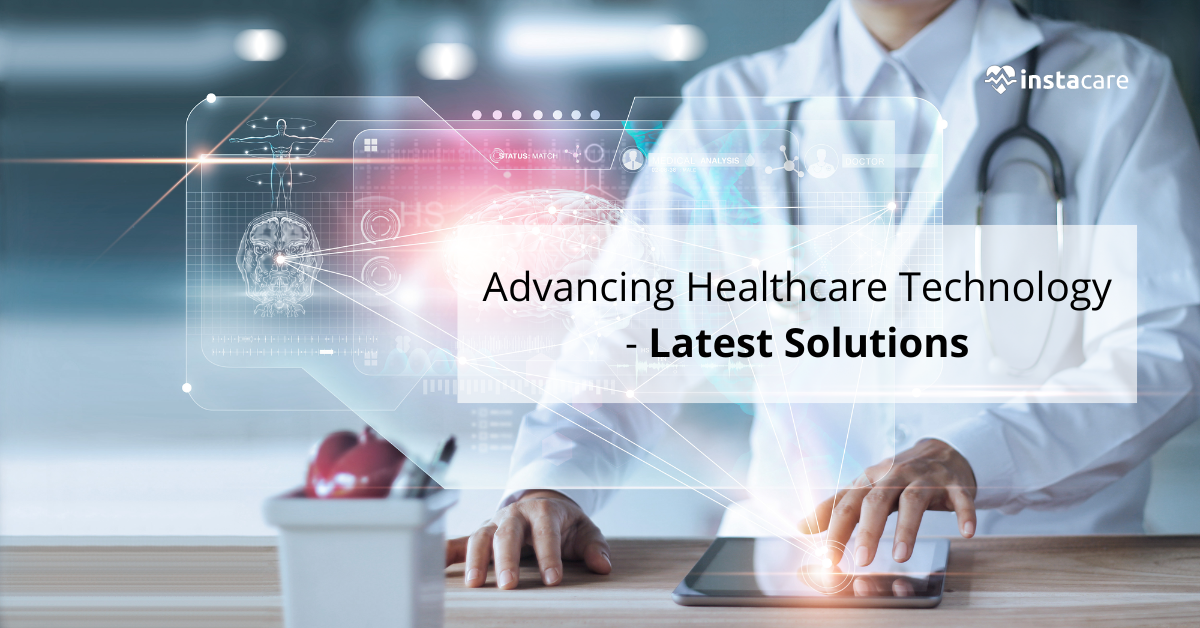Last updated on Tuesday, 8, April, 2025
Table of Contents
Advancing Healthcare Technology – Latest Solutions
The healthcare technology is constantly evolving and playing an ever-increasing role in the advancement of patient care. From innovative medical advances to electronic health records, bringing cutting-edge technologies into the mix offers efficient solutions for providing healthcare services that are more effective and easier to access for both patients and providers alike. In this blog post, we’ll explore some of the latest advancements in healthcare technology that are helping to revolutionize secure data storage, tracking patient outcomes, and delivering quality care. Through these innovations, we can be sure that our lives remain healthier with every passing day.
Explore the Latest Advances in Healthcare Technology
Technology has revolutionized the healthcare industry, offering a plethora of advancements that have the power to change the world of medicine as we know it. From electronic health records to telemedicine, healthcare technology has enabled patients to receive care in new and innovative ways. One of the latest developments in healthcare technology is the use of artificial intelligence (AI) in medical diagnostics.
With AI, doctors can more accurately diagnose conditions, predict treatment outcomes, and identify potential health risks. Additionally, virtual reality (VR) is being used to improve patient experiences by providing an immersive, relaxing environment that can alleviate pain and reduce anxiety. These exciting technological advancements are just a few examples of how healthcare technology is shaping the future of medicine.
Assess the Impact of 5G Connectivity on Health Care
The dawn of 5G connectivity has promised to unlock an era of unprecedented speed and seamless connectivity. While the impact of this cutting-edge technology is evident across various fields, many see healthcare technology as the biggest beneficiary of 5G innovations. With lightning-fast speeds, low latency, and greater bandwidth, 5G is set to revolutionize the healthcare industry, bringing about a host of benefits for both patients and providers.From telemedicine to remote monitoring, this game-changing technology promises to disrupt traditional healthcare models, creating new avenues for care delivery that are more efficient, convenient, and cost-effective. With 5G connectivity, healthcare providers can enhance patient outcomes, reduce healthcare costs, and ultimately, transform the way we approach our health.
View More: Streamline Your Medical Billing with Medical Billing Software
Evaluate How Artificial Intelligence is Transforming Diagnoses and Treatment
As the healthcare industry continues to evolve and embrace new technology, it’s becoming increasingly clear that artificial intelligence (AI) has the potential to revolutionize diagnoses and treatment. With its ability to analyze mountains of data more quickly and accurately than any human ever could, AI has the potential to identify diseases and conditions that might otherwise go undetected. It can help doctors pinpoint the underlying causes of specific symptoms, leading to more targeted and effective treatment plans.
In everything from radiology to pathology to oncology, healthcare technology is being transformed by AI, unlocking new possibilities and breaking down barriers that were once thought insurmountable. As AI continues to gain traction in the healthcare field, the potential for even greater advances in diagnoses and treatment only continues to grow.
Understand How Wearable Technologies are Helping Patients Manage their Well-being
Wearable technologies have revolutionized the way patients manage their well-being. These smart devices have become game-changers, taking healthcare a step forward into the future. The advanced technology embedded in these wearable’s has provided healthcare providers with real-time data, enabling them to gain valuable insights into patient health trends.
More importantly, it has empowered patients to take their health into their own hands, actively monitoring and managing their health and fitness goals. From tracking daily activity levels and monitoring heart rate to counting calories and measuring sleep patterns, these miniaturized health monitors have added a new level of precision to health care. As wearable technology continues to advance healthcare, the future looks promising for patients who are looking to lead healthier lives.
Review the Benefits of Remote Monitoring Solutions for Long-term Care Facilities
As healthcare facilities continue to advance, remote monitoring solutions have become increasingly popular for long-term care facilities. These solutions offer numerous benefits for not only the staff but also the patients. Patients receive more personalized care as their vital signs can be continuously monitored, allowing for early detection of any medical issues. Staff can also receive alerts when a patient’s condition changes, allowing for quick and effective intervention. The use of remote monitoring solutions saves time and reduces costs as staff can monitor multiple patients simultaneously. In all, remote monitoring solutions have transformed long-term care facilities and are an invaluable aid for healthcare professionals.
Discuss New Opportunities for Data Security & Privacy in Healthcare
As technology progresses, so do the security and privacy concerns healthcare faces. New opportunities for data security and privacy arise regularly in the healthcare technology sector. These advancements can be a double-edged sword. They can either protect healthcare data or put it at greater risk. Healthcare providers are under pressure to ensure that their patient’s protected health information stays safe from cyber security threats and data breaches.
New technologies, however, can significantly enhance data security, including data encryption, firewalls, and biometric authentication. Continuous advancements in healthcare technology, combined with unprecedented cyber threats, present new opportunities and challenges for healthcare professionals. Safeguarding patients’ privacy and data is more important than ever in today’s digital world.
Conclusion
Advances in healthcare technology have revolutionized the way we provide and receive care. From monitoring our health status remotely to utilizing artificial intelligence for data analysis, the latest solutions are allowing us to break through the boundaries of what was once thought to be impossible. With creative thinking and careful implementation, these new technologies can help bridge the gap between doctors and patients and ensure that everyone has access to quality, affordable care.
As we continue to create more innovative solutions, we can remain confident that healthcare technology is on an upward trajectory that will ultimately make healthcare delivery more seamless and efficient for all individuals. We should take full advantage of all the potential benefits that technological advances can offer, enabling us to create a healthier global community for ourselves and our families.



